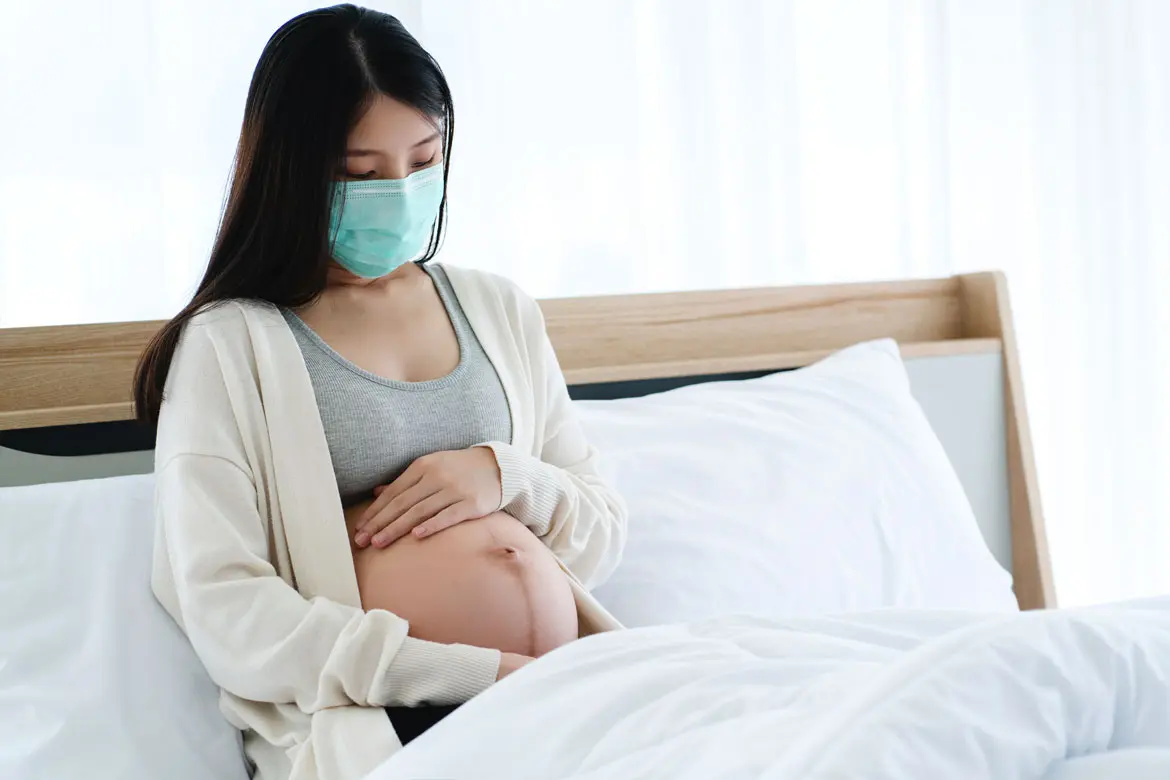Dr Yam Pei Yuan John
Obstetrician & Gynaecologist


Source: Shutterstock
Obstetrician & Gynaecologist
Pregnancy may be one of life's greatest joys, one which both mothers- and fathers-to-be relish with excitement and anticipation of baby's arrival.
However, with the COVID-19 pandemic in full swing around the world, this heightened excitement often gives way to anxiety and stress over the many 'What ifs' that could happen.
"Being pregnant, am I at a greater risk of being infected? How will the virus affect my baby? How can I take better care of myself?" Dr John Yam, obstetrician and gynaecologist at Gleneagles Hospital, answers some of these commonly asked questions, from expectant parents worried about the threat COVID-19 poses.
At present, it is unknown how many pregnant women have been infected with COVID-19 but experts believe the number to be low. Thus far, no deaths have been reported in Singapore amongst expecting mothers who contracted COVID-19 and COVID-19 has not been shown to cause foetal abnormalities.
However, there is data indicating that pregnant women may be more likely to develop severe COVID-19, and face higher risk for maternal and new-born complications hence it is advisable for pregnant women to be vigilant and practice all the recommended COVID-19 preventive measures.
Pregnant women will experience changes in their immune system, making them more susceptible to viral infections, such as COVID-19 and influenza. Furthermore, depending on the type of virus, different complications may occur in expecting mothers.
Women who are pregnant or breastfeeding are eligible to receive the mRNA-based COVID-19 vaccine.
Studies on women who were vaccinated while pregnant, reviewed by the Expert Committee on COVID-19 Vaccination, found no evidence to suggest that the mRNA-based Pfizer-BioNTech or Moderna COVID-19 vaccines may cause harm to pregnant women or their babies. To-date, there have been no vaccine-related side effects reported in babies who were breastfed by mothers who were vaccinated while breastfeeding, as mRNA-based vaccines are not live vaccines and unlikely to affect breastfed babies.
Apart from vaccination, the recommended COVID-19 precautionary measures should also be practised by pregnant women. The following practices are also applicable to the rest of the population:
Nasal congestion can occur in up to 20% of healthy pregnant women. This may be mistaken for COVID-19 symptoms. On the other hand, nasal congestion, if present, may also mask symptoms of a COVID-19 infection. It may also cause sneezing, which could transmit the disease to the people around you.
Shortness of breath due to pregnancy is also a fairly common symptom pregnant women experience.
When in doubt, please consult your doctor.
If you have any symptoms of a respiratory infection such as fever, cough and/or difficulty in breathing, you should consult your doctor immediately, as a respiratory infection could lead to serious complications, require hospitalisation or affect your baby's health.
If you suspect that you have been exposed to someone with COVID-19, please inform your doctor beforehand for advice on what to do next.
There have been very few cases of pregnant women being infected with COVID-19, so our understanding of this is still evolving. However with the few cases of infection, babies were not severely affected after being born to mothers who had tested positive for COVID-19.
Based on our current knowledge about the virus, breastfeeding can continue even if a mother tests positive for COVID-19.
However, wear a face mask when you are carrying your child and observe strict hygiene to reduce the risk of droplets from your mouth and nose coming into contact with your baby.
They appear to have equal risk as adults contracting the virus. However, with the current state of knowledge, the risk of severe complications seems to be much lower in babies than that of adults.
Observe strict personal hygiene to reduce the risk of droplets from your mouth and nose from coming into contact with your baby. Alternatively, keep newborn or young children at home and practise responsible social distancing until the situation improves.
Practise strict personal hygiene, wear a mask and maintain social distancing. Ensure that all objects and surfaces that your child comes into contact with are meticulously kept clean, and washed thoroughly with soap and water.
If you suspect you have been exposed to COVID-19, you are advised to conduct your own Antigen Rapid Test (ART) at home. If the results are positive, you should take a PCR test to confirm the results. However, should you experience any COVID-19 symptoms, such as fever, cough, runny nose or loss of taste or smell, you should see a doctor to get tested for COVID-19.